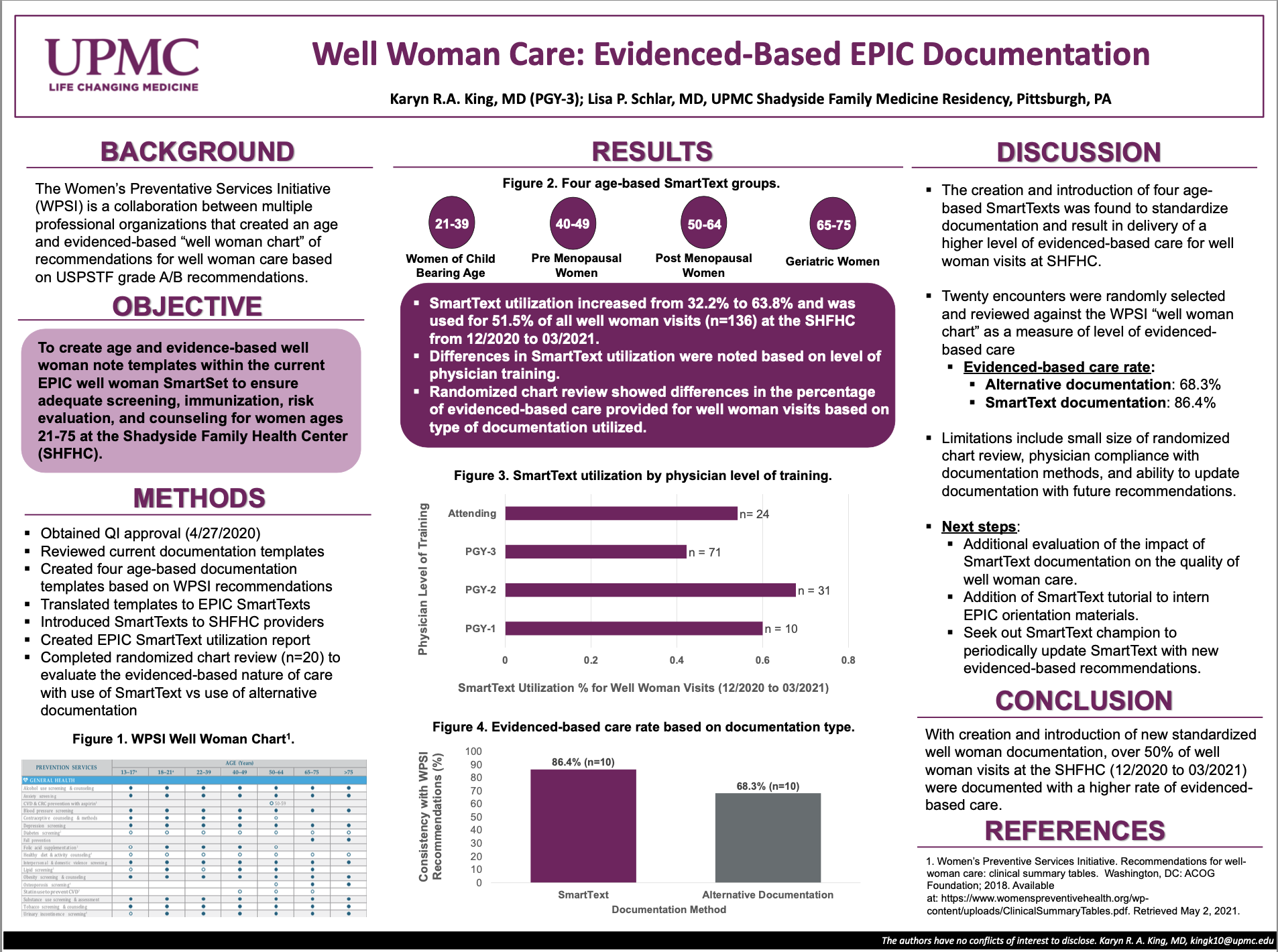Title: Well Woman Care: Evidenced-Based EPIC Documentation
Authors: Karyn R.A. King, MD; Lisa Schlar, MD
Background:
The Women’s Preventative Services Initiative (WPSI) is a collaboration between multiple professional organizations that created an age and evidenced-based “well woman chart” of recommendations for well woman care based on United States Preventive Services Task Force (USPSTF) grade A/B recommendations. The WPSI well woman chart was used to create age and evidence-based well woman documentation templates to ensure adequate screening, immunization, risk evaluation, and behavioral counseling for women ages 21-75 at the UPMC Shadyside Family Health Center (SFHC).
Methods:
Documentation templates within the “Primary Care Gyne” SmartSet (used by 50% of residents per self-report survey) were reviewed and found to have both missing and non-applicable components for well woman care. Four age-based templates (21-39, 40-49, 50-64, and 65-75) were created using guidance from the WPSI “well woman chart.” The templates were translated to EPIC SmartTexts and added to the “Primary Care Gyne” SmartSet with assistance from EPIC support. The SmartTexts were introduced via word of mouth and email tutorial. An EPIC monthly utilization report was created for monitoring SmartText use. A randomized chart review was completed to evaluate the evidence-based nature of care (e.g., consistency with WPSI “well woman chart” recommendations) provided with use of the SmartText vs. use of alternative documentation.
Results:
SmartText utilization increased from 32.2% to 63.8% and was used for 51.5% of all well woman visits (n=136) at the SFHC from August 2020-March 2021. Differences in utilization were noted based on level of physician training (PGY1: 60.0%, PGY2: 67.7%, PGY3: 42.3%, Attending: 54.2%). Documentation with the SmartText resulted in an evidenced-based care rate of 86.4% (n=10) while use of alternative documentation resulted in an evidenced-based care rate of 68.3% (n=10).
Conclusion:
With creation and introduction of new standardized well woman documentation, over 50% of well woman visits at the SFHC (December 2020-March 2021) were documented with a higher rate of evidenced-based care.

